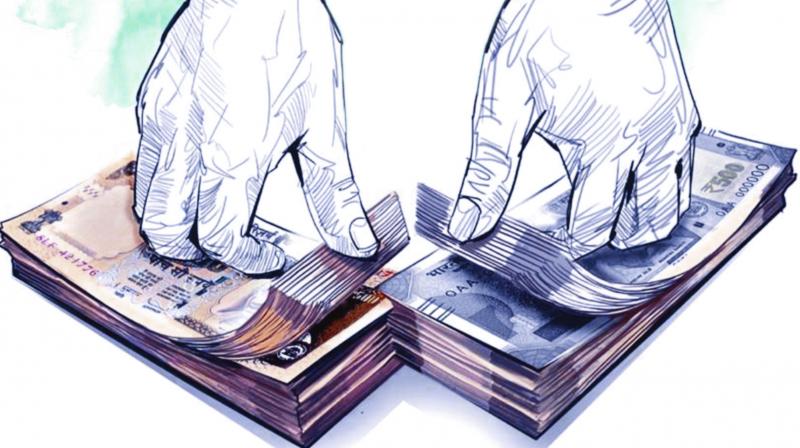On the contrary: Ayyo rama

A popular theory doing the rounds regarding demonetization is that the "spoonful of sugar" which helped the poor swallow this bitter pill was the consolation that the rich, burdened by their ill-begotten black money, were finally going to be held accountable. As Arvind Subramaniam, the former CEA pithily summed it up, 'I lost a goat, but they lost their cows.' Cynics may wonder why the oracle waited until now to speak his mind but let's be charitable: perhaps his present "grandpa duties" and the nurturing of bright young minds at Harvard's Kennedy School of Government have broadened his outlook. Pundits like Gurumurthy, who, heaven help us, serve on the board of the RBI, theorize that the costs to the poor were unavoidable collateral damage incurred for the loftier goal of targeting holders of black money. As any fule kno, this is voodoo economics born of sloppy thinking.
Kaushik Basu, who also served as CEA, was far more outspoken: "Black money isn't kept in a suitcase under someone's bed or stuffed in a bank locker; it is often the grease that powers as much as 30% of GDP, especially in the construction industry." Corruption is probably viewed as the largest problem faced by India today with some going so far as to suggest we have the monopoly on being corrupt. This has more to do with perception than reality; with a GDP of $13 trillion, dollar for dollar, America holds this dubious distinction for one simple reason: lobbying. Be it timber, oil drilling, casinos or Facebook, every badass, carbon emitting creep in the US has a kickass lobbyist pimping his ride on Capitol Hill. But you won't find this data on Transparency International where the US is rated at 15th place while we come in at a dismal 81st.
I'm not saying we are Snow White, just that there are 50 shades of grey and that institutionalized corruption, aka lobbying by special interest groups, is as injurious to economic development in the long run as bribery. As anyone who has had a katha transferred or run afoul of the BBMP will attest, petty bribery is far more rampant in India where the system is structured towards the payment of hafta and the generation of unaccounted money.
Which brings me to our former CVC, N. Vittal, winner of the "Great Son of the Soil" award conferred on him by the All India Conference of Intellectuals; I swear I'm not making this up. He has brought out a manual on the subject of corruption, entitled "The Rama Method," which one wag described as "Ayyo Rama." During his tenure, Vittal was an equal opportunity offender: when he posted a "List of Shame" on the Vigilance website naming the most corrupt bureaucrats, most politicians were delighted with the embarrassment it generated in North Block. However, when he subsequently went on to name and shame politicians across party lines, there were quite a few red faces in Parliament.
Vittal defines his theory as the RAMA curve: initial Resistance and Anger moves towards Mellowing and Acceptance when the public take a proactive stance with institutionalized change, rather than moaning about corruption over a Scotch. He believes that behind every corrupt babu stands an avaricious wife and a bunch of greedy children hankering for the latest i-phone X. If they can be persuaded to take up 'high thinking and simple living' - to get their vices versa in a manner of speaking, then we will be better off, no pun intended.
Recently an uncle of mine was at a party with a cement baron who was holding forth on the subject of how Indians are fundamentally dishonest. He complained bitterly about how 'IAS officers in Mumbai rent out their flats at princely sums while enjoying subsidised housing.' 'Are you sure?' uncle delicately enquired. 'Of course,' thundered the magnate, 'take that Buena Vista building opposite Mantralaya. Mr. B has rented it out for lakhs and is living in some bloody jhuggi somewhere.' 'Well he must have done it in the last half an hour,' countered uncle, 'since I saw him in the lift as I was leaving to come here. He's been my neighbour for the last three years.'

